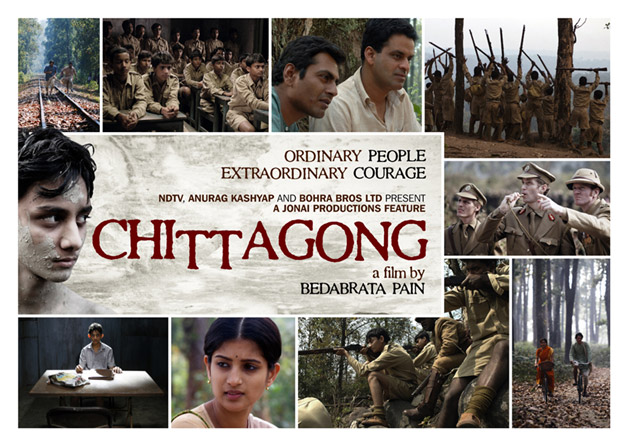Public Forum and Film Screening
October 6, 2013
10.30 am – 5.30 pm
SFU Harbour Centre
515 West Hastings Street, Vancouver
One hundred years ago immigrants from British India on the west coast of North America, from Vancouver to San Francisco, working on farms and in saw mills or teaching and studying in universities came together in the Finnish Socialist Hall in Astoria, Oregon, to found the Ghadar (Rebellion) Party. Their goal was to liberate India from British colonialism by armed struggle as the Americans had freed themselves from the British nd the Finns from the Russians. This was the culmination of work that had been going on in London, New York, Berlin, Shanghai, and Tokyo to build revolutionary centres to support the struggle for liberation in India.
The Ghadar Party brought together intellectuals like Lala Hardyal from Delhi, Taraknath Das from Calcutta, V. G. Pingley from Poone, P. S. Khankoje from Wardha, Maulana Barkatullah from Bhopal and workers and students from Punjab like the mill-worker founding president of the party, Sohan Singh Bhakna and the young student at the University of California at Berkeley, Kartar Singh Sarabha, who printed the party paper, Hindustan Ghadar.
The Ghadar Party was linked to many movements, including the anti-colonial struggle in Ireland, the anti-imperialist struggle of Pan-Islamism, the militant nationalist struggles in Punjab, Maharashtra and Bengal, and the struggle against racial discrimination in the US and Canada, which would come to a head in the Komagata Maru incident in 1914. Its driving ideas came from anarchism, Marxism, and Sikhism. It sought liberation and social justice locally, nationally, and internationally.
The immediate goal of the Ghadar Party, the bringing about an armed insurrection in India along the lines of the Uprising of 1857, was not realized and many of its leaders were imprisoned and hanged: V.G. Pingle, Kartar Singh Sarabha, and Pandit Kansi Ram were hanged in Lahore Jail in 1915. But their legacy inspired other revolutionaries, including Bhagat Singh, who carried the picture of the nineteen-year old martyr, Kartar Singh Sarabha, with him. This is the legacy that the South Asian diaspora needs to celebrate and seek inspiration from in the ongoing struggle for liberty and justice in Canada, India and the world.
The Legacy of Ghadar
October 6, 2013
Programme:
Public Forum: 10.30 – 12.30 pm Rm. 2270 Sauder Policy Room
Moderator: Zahid Makhdoom
Panel: Bedabrata Pain, Prabhjot Parmar, Raj Pannu, Sadhu Binning, Setty Pendakur, Summer Pervez
Zahid Makhdoom is a Provincial Court Judge in British Columbia and a Director of Hari Sharma Foundation.
Bedabrata Pain is a NASA engineer and filmmaker based in California. He is the writer/director of the film CHITTAGONG that will be screened following the public forum.
Prabhjot Parmar teaches English at University of Fraser Valley and is a women’s rights and dalit rights activist.
Raj Pannu is Professor Emeritus at University of Edmonton and was MLA and leader of the NDP in Alberta.
Sadhu Binning is a retired teacher at University of British Columbia, a poet, writer, and community activist.
Setty Pendakur is Professor Emeritus at University of British Columbia. He was the first South Asian to be elected to political office in Canada when he became a city councillor in Vancouver in 1972.
Summer Pervez teaches English at Kwantlen Polytechnic University. She is also a student at Vancouver Film School and an activist for peace and social justice.
Lunch Break: 12.30 – 2.00 pm
Film Screening: 2.00 –5.30 pm Rm. 7000 Earle & Jenny Lohn Policy Room
CHITTAGONG: written (with Shonali Bose) and directed by Bedabrata Pain, 2012, winner of several awards.
 Directed by Bedabrata Pain, 2012, Hindi with English subtitles. 105 mins.
Directed by Bedabrata Pain, 2012, Hindi with English subtitles. 105 mins.
In 1930 a group of students led by a teacher, Surya Sen (Master Da), raided the armoury in the East Bengal city of Chittagong and took over the government of the city. Though some of them were captured others continued to fight for some years before all of them were killed, captured, sent to the penal colony in Andamans, or hanged. Women played an important part in this struggle.
The film CHITTAGONG retrieves a memory of an armed anti-colonial struggle in Bengal that is all but forgotten. It is part of the same movement for revolutionary overthrow of colonial rule in which the Ghaderites before them and Bhagat Singh, contemporaneously with them, were involved but one that both India and Bangladesh have chosen to forget.
The film will be introduced by Bedabrata Pain, who will also do a Q & A after the screening.
Organized by South Asian Network for Secularism and Democracy in partnership with South Asian Film Education Society and financial support from Hari Sharma Foundation.
The programme is free to the public.
For further information and to reserve seats contact: Chin 604-421-6752